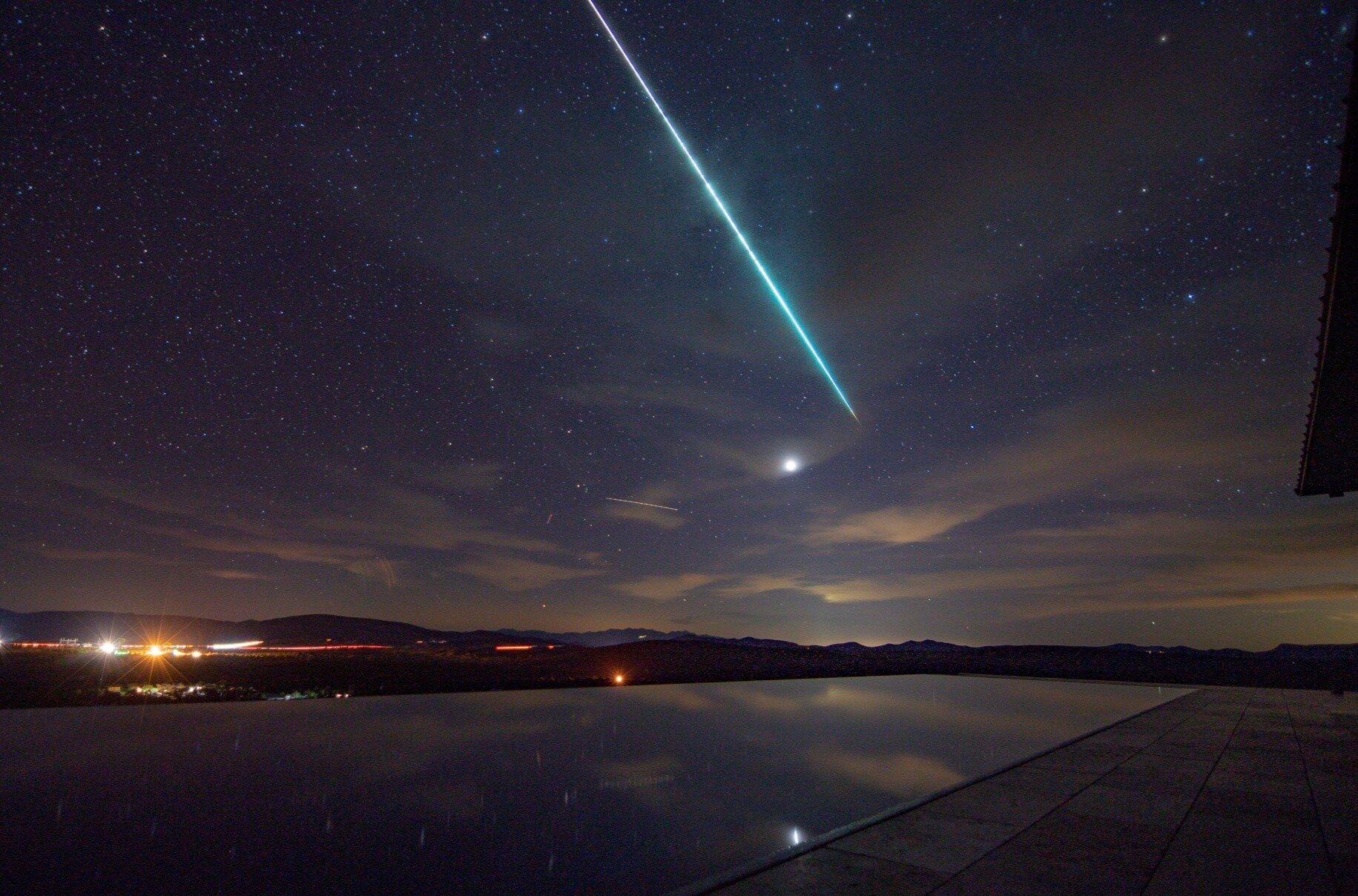
First, and most importantly, meteors must be observed far from artificial light. Find a similar place nearby, this map can help you (it is best to use the 2015 layer). It is at least necessary to get out into the green zone of illumination, but it is better to strive for at least the blue zone.

Secondly, the maximum spectacularity and effectiveness of observations can be achieved in a location with a wide open horizon. To do this, they drive to the fields or to the tops of hills and mountain plateaus (on the tops of the mountains there are poor astroclimate conditions).

As for the height above sea level, then of course you must try to rise higher, if possible. The most negative effect is produced by the so-called surface layer. This layer, consisting of suspended dust and water vapor, greatly reduces the transparency of the air and, accordingly, the visibility of dim meteors. To eliminate its negative impact, you must climb at least 300m above sea level.

It is best to observe meteor showers lying on a sun lounger or tourist foam. Meteors can appear anywhere in the sky, so you should pay attention to the entire sky, without lowering your gaze to the horizon below 20-25 angular degrees. Light preparation of vision is required, at least for 20 minutes (staying with eyes closed before observation). It is strictly not recommended to use gadgets, flashlights and make fires while observing meteors, otherwise the dark adaptation of vision will go astray and you will not be able to see less bright meteors.

It is also necessary to try to carry out observations of meteor outbreaks on those nights when the moon is either in the new moon, or in the phases of the first or last quarter. At full moon and phases close to it, viewing meteors is very difficult due to the bright glow of our companion.

I believe that it is not worth focusing too much on the need to observe meteors in the clearest possible weather, and at the same time always dress warmly (since observations are slow-moving actions), it is not worth it, because these are very obvious things!

All clear skies and successful observations of meteor showers! If you have any questions, be sure to write them in the comments, I will answer you.
The text was prepared for the group in VK : vk.com/astronomy_in_sochi